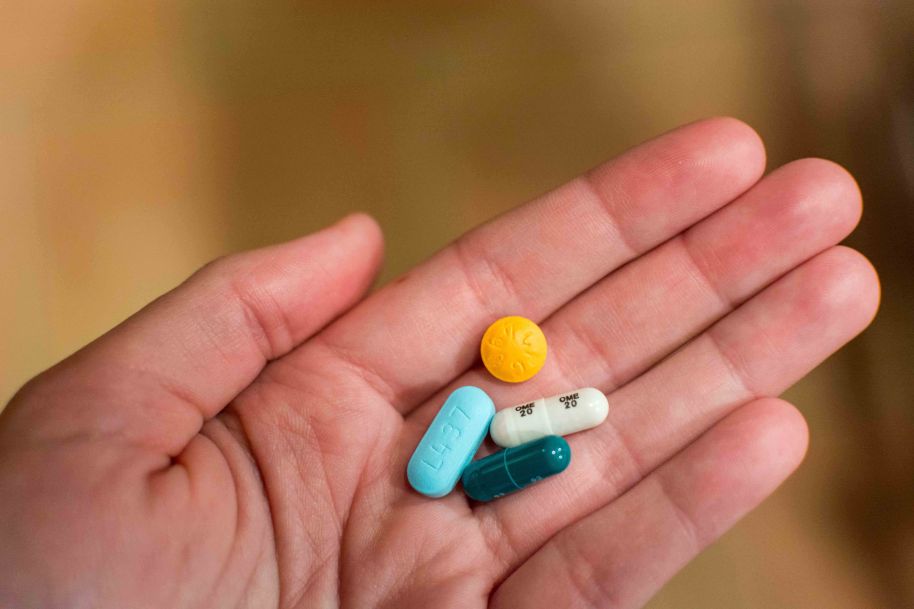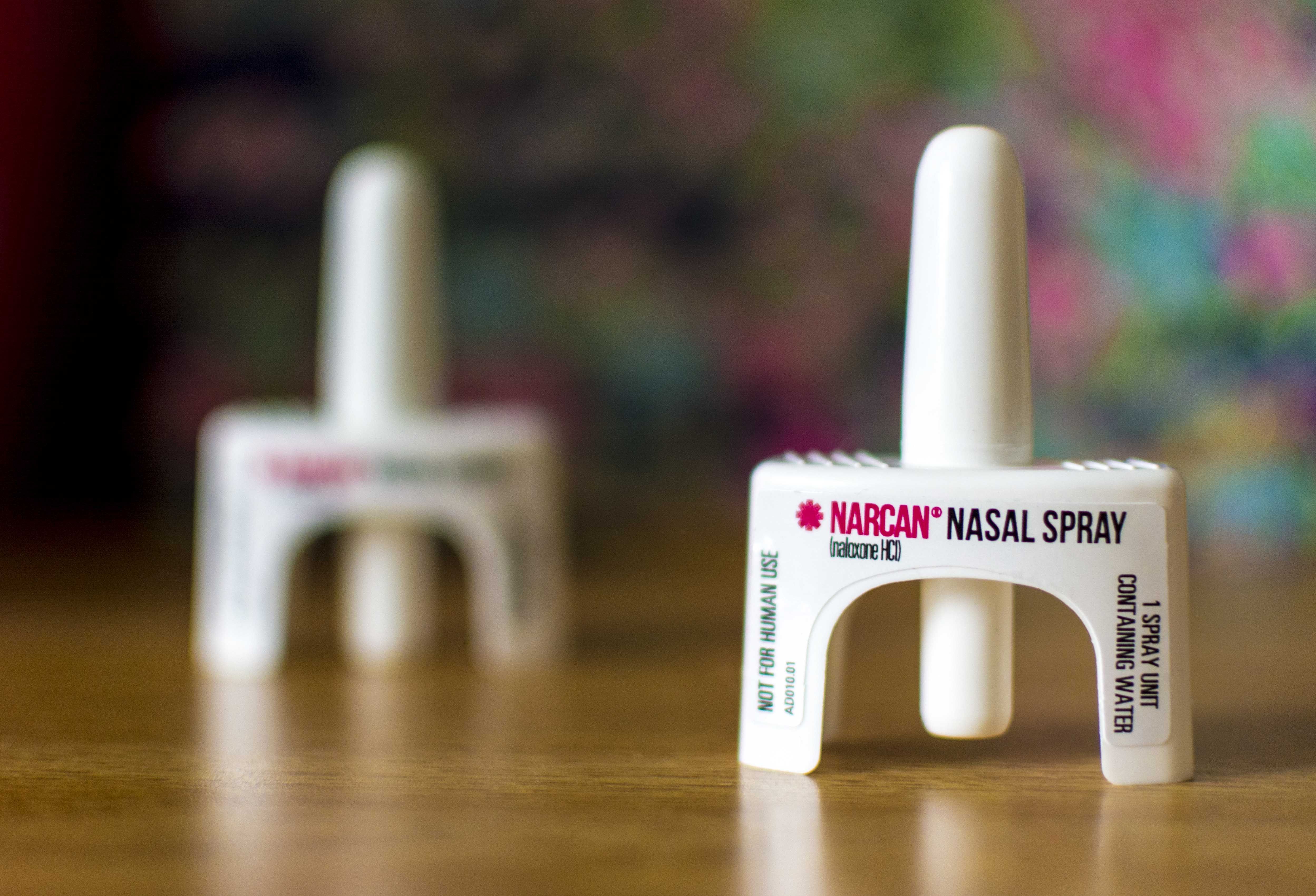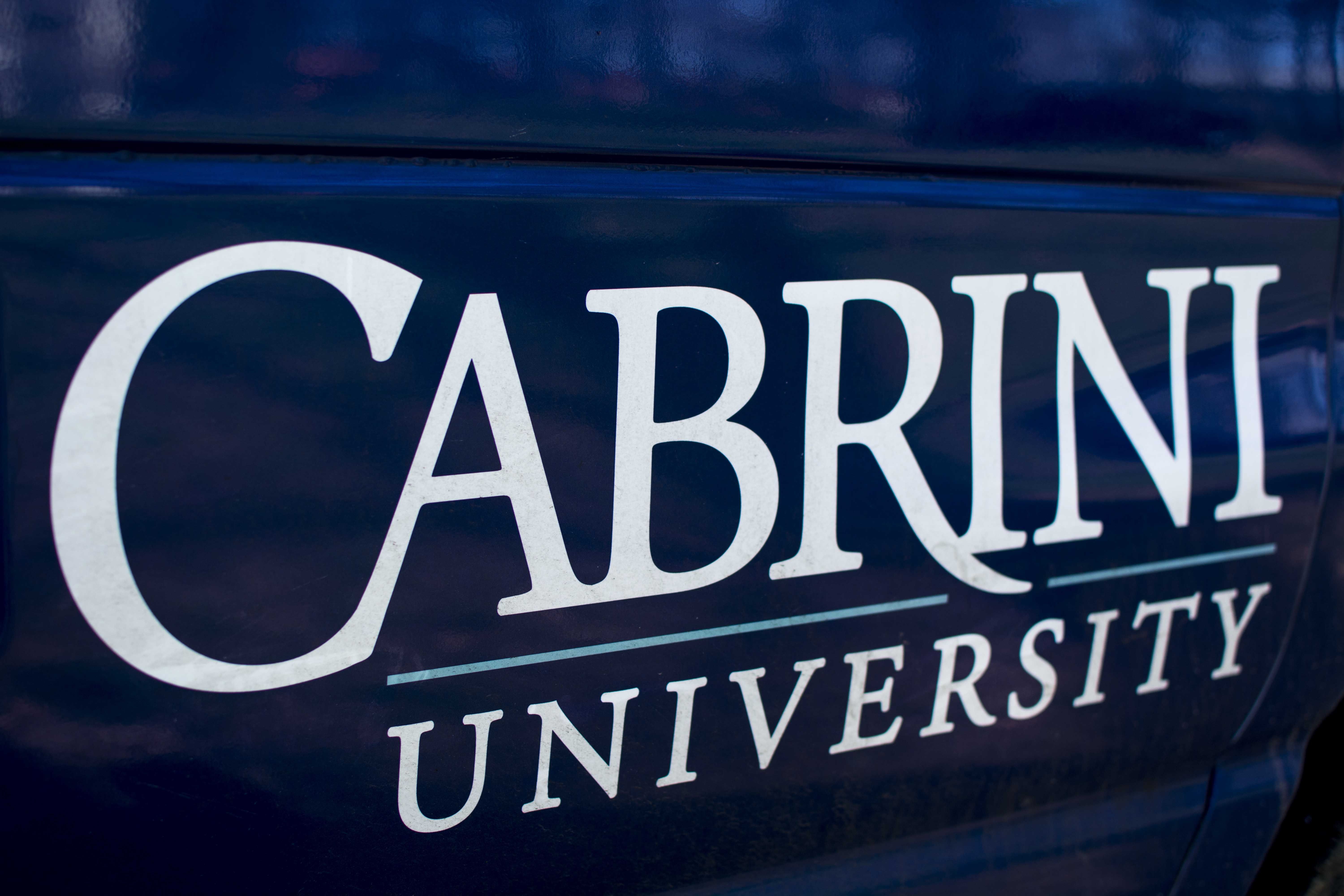Opioids: a type of drug that acts on the nervous system to ultimately relieve pain, often abused and sometimes even deadly.
About 50 percent of college students are offered prescription drugs by other students for non-medical purposes by their sophomore year, according to the Journal of Drug Abuse. Unfortunately, many students will take up that offer and potentially change their lives forever.

In many cases it only takes one, yes, one pill, to get high and addicted to opioid-based drugs.
Obtaining opioid prescription medications can get costly, especially for students on a tight budget, but once hooked on opioids it is almost impossible to give them up.
From taking pricy prescription opioids like OxyContin, codeine and Vicodin, which to many seem like a safer way to get high, people often eventually switch to using heroin because it provides a substantial high for a lower cost than prescription pills.
Radnor police lieutenant Andrew Block, commander of the special operations division which includes the drug task force, has been serving the Radnor police department for 26 years and has seen too many lives lost because of drug addiction.
“Sadly, Philadelphia is one of the heroin hubs on the east coast where an individual can drive to Philadelphia and be back in 40 to 45 minutes with a bundle of heroin, which is 10 to 12 hits that they’ll have for the next couple of days,” Block said.

“There are misconceptions that heroin and fentanyl are not present on college campuses. However, they are becoming more and more available and pervasive, especially with availability of heroin in powder form, black tar heroin and synthetic fentanyl, 50-100 times more powerful than morphine,” Lori Holleran Steiker writes in her article, Opioid Overdose Prevention Initiatives on the College Campus.
Overdoses on opioids are unfortunately very common. According to the DEA, Pennsylvania alone in 2015 saw 3,383 drug-related overdose deaths which is a 23.4 percent increase from the total number of overdose deaths (2,742) reported in 2014.
In April 2016, the Cabrini community lost a student to a suspected drug overdose. The suspected overdose happened off of the college’s campus at a house in West Conshohocken. According to a report by NBC Philadelphia, an “officer administered [the] anti-overdose drug naloxone and performed CPR but the man didn’t respond and medics pronounced him dead on the scene.”
Unfortunately for this Cabrini student, the life-saving drug naloxone, also known by the brand name Narcan, was unable to revive him. The Cabrini community lost a strong student-athlete, a friend to many and a young man who had a lot of potential.
According to the Journal of Drug abuse, “Naloxone hydrochloride is a generic, non-narcotic opioid antagonist that blocks the brain cell receptors activated by opioids. It is a fast-acting drug that, when administered during an overdose blocks the effects of opioids on the brain and restores breathing within two to three minutes of administration.”

“It is a phenomenal drug, it is a phenomenal counter agent to reverse the opioid [overdose],” Block said.
Kelly Day is grateful for the lifesaving drug Narcan for saving her daughter’s life. About four years ago Day’s daughter, Sam, overdosed on heroin and was unresponsive.
“I got a phone call one night from Sam’s friend around 10:30 at night,” Day said. “I remember it like it was yesterday.”
‘Sam’s not breathing, I can’t wake her up,’ the friend frantically said over the phone.
“Did you call an ambulance?” Day asked.
Sam’s friend said no.
Day arrived to the scene to see her daughter lying with her eyes rolled back.
“When I got there I called back 911 and I was able to keep her alive and give her CPR until the ambulance got there, which is something no parent should ever, ever have to do — give their child CPR,” she said.
“We got her to the hospital and they shot her with the Narcan… which is a drug that puts you into instant detox,” Day said.
“The police and I went to my house to ransack her room to see if we could possibly find what it was that she took,” Day said. “Then the police went back to where Sam originally was, where it all happened, and they found heroin in the fireplace. We knew then what it was.”
Although Sam was not in college at the time of her overdose, if she had been there would be only a small chance that her college campus public safety officers would have had Narcan on hand to save her life.
Back in 2014, Boston University campus police began carrying Narcan, making it the first campus in the nation to supply the antidote. A few other colleges have since followed suit but many still rely solely on first responders in case of an opioid overdose.
The Cabrini University campus is just one of many where public safety officers are not equipped with Narcan in case of an opioid overdose emergency.

“At this time our Public Safety Officers do not use Narcan,” Joe Fusco, director of public safety, said in an email. “If we were to come upon a student in need of the drug in order to save their life, Public Safety would rely upon the training of Radnor Police Department. Radnor PD is has an extremely quick response time and all of their officers are trained in how to handle these situations.”
Additional questions posed about the topic to Public Safety were unanswered.
“Narcan is part of what we have in our first response and first aid safety kits,” Block said. “The officers in Radnor township, on the average, their response time to any incident is approximately two minutes, which is an exceptional response time so if there is some type of opioid or narcotic overdose that officer is walking through the door within two minutes and they have the Narcan in their possession.”
Unfortunately in some cases the Narcan is administered too late to save a life and at this point in time most people do not carry Narcan. It is typically only carried by emergency personnel.
According to a study conducted by Q Market Research, “Even though almost one-third [of college students surveyed] (30.8 percent) said they know of someone who has overdosed on prescribed pain medication or heroin, 37.2 percent said they would not know where to go for help if they, or someone they know, experienced an overdose.”
On college campuses where drugs are often prevalent at parties and beyond, it is concerning that many people are unaware of what to do if they think a friend has overdosed. Narcan nasal spray is extremely easy to administer. Therefore, it is available for anyone to now purchase and have on-hand in case of an emergency.
On April 10, 2017, The Clinton Foundation and Adapt Pharma announced that they will be working together to provide 40,000 free doses of NARCAN nasal spray to colleges and universities throughout the country. NARCAN nasal spray is the only FDA-approved nasal spray and it is designed to be simple enough for people without medical training to administer a potentially lifesaving dose.
This initiative is part of an ongoing collaboration between the Clinton Health Matters Initiative (CHMI) and Adapt Pharma. Any Title IV-eligible, degree-granting colleges and universities in the US can now apply to receive up to four free cartons (eight 4mg doses) of NARCAN® Nasal Spray to have on campus. Colleges and Universities can apply for their free Narcan at www.narcan.com/partnerships.
The initiative aims to put an end to student’s death from opioid overdose. Having Narcan nasal spray on campus and available at all times is the first step in making that happen.
Day chooses to carry Narcan nasal spray in her purse at all times because of her daughter’s history. “When Sam came home [from rehab] she gave me a dose [of Narcan] to put in my purse,” she said. “I carry it with me at all times.”
“You can give Narcan to anybody. It is a benign substance. You don’t have to worry about somebody having an allergic reaction to it. If you are unsure of why the person is unresponsive you can give it to them without any fear,” David Fialko, a drug prevention specialist with the Council of Southeast Pennsylvania, said.
Narcan is easily accessible to anyone who wants to have it on-hand.
“Today you could walk into a CVS, Rite Aid or ACME and walk up to the pharmacy and ask for Narcan nasal spray,” Thomas Duddy, the executive director of communications and public relations for Adapt Pharma, said.

“In Pennsylvania you can do it without a prescription, because there is a standing order here and in most states, well 35 states, have that ability now too,” Duddy said. “So you can walk in and access Narcan with your insurance card or pay cash.”
The ADAPT brand Narcan nasal spray typically costs about $125 for a two pack which are each four mg. Today, many insurance companies will now cover most of that cost in hopes that Narcan will become more widely spread.
“Insurance companies today have been very forth coming with wanting to pay for Narcan and think about it, it’s a very difficult situation,” Duddy said. “If I go to a pharmacy today and want to get Narcan, I put my insurance card and hand it over the counter. The pharmacist knows that that is not for me, I can’t self inject or put the nasal spray up my nose when I’m having an overdose.”
“Insurance companies have been very willing to pay or make copays very reasonable for folks so they can get access to the drug,” Duddy said.
As the opioid epidemic unfortunately continues to grow daily, the availability and easy access to Narcan will be imperative to saving lives and giving people a second chance at life.
“Human life is sacred, every life matters and that’s what we see now that people are overdosing on these different opioids and either significantly impacting their physical and mental health or ultimately it costs them their lives when they are doing that,” Block said.
The Importance of Narcan from Cabrini ComDept on Vimeo.
Video Created by: Emily Rowan



